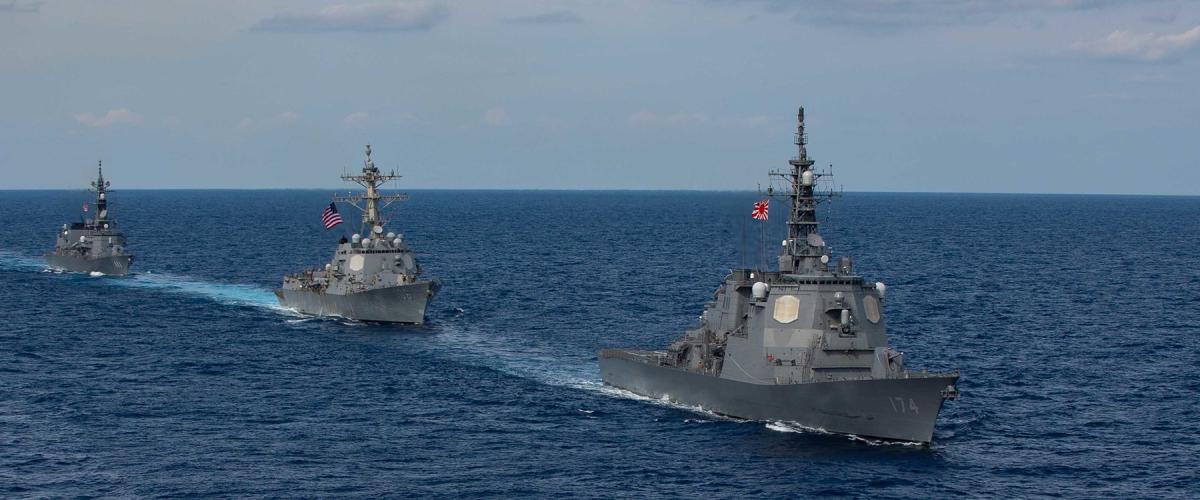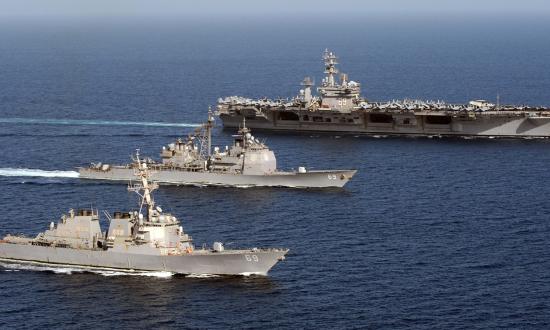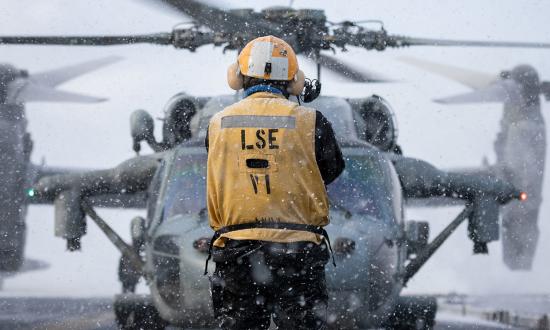Speaking about the Pentagon, former Master Chief Petty Officer of the Navy Russ Smith (then a first-class petty officer) once told me, “Sir, you couldn’t swing a dead cat in this place without hitting an O-6.” At the time, in 2000, China was barely on the Pentagon’s radar. As we put together this issue, I was reminded of that expression, but with a twist: You can’t swing a dead cat without hitting China. Nearly every article in this issue addresses some aspect of how to deal with the threat China and its People’s Liberation Army (PLA) pose to peace and security in Asia.
To begin, Scott Savitz’s “Defend Taiwan with Naval Mines” describes the vital and cost-effective role of naval mines in a porcupine defense. Marine Lieutenant Colonel Brian Kerg’s “Victory Through Grand Ideals” is speculative fiction: In 2029, a PLA Navy officer reflects on how the U.S. Navy failed to prevent the fall of Taiwan. Cut from the same cloth as Captain Dale Rielage’s “How We Lost the Great Pacific War” (May 2018), it should be required reading, especially before officer selection boards.
The Maritime COIN Project continues this month with “The Cod Wars and Lessons for Maritime Counterinsurgency” by Kevin Bilms. In a series of skirmishes from the 1950s to the 1970s, Iceland played “David” to Britain’s “Goliath” in a battle for fishing rights, yielding lessons for how smaller states can push back against China’s illegal, unreported, and unregulated fishing today.
Close on the heels of the Cod Wars comes “Fishing for Trouble: Chinese IUU Fishing and the Risk of Escalation” from Coast Guard Commander Jennifer Runion. Commander Runion addresses China’s massive fishing fleet and its predatory harvesting of fish stocks around the world, particularly in other nations’ exclusive economic zones.
The Chief of the Navy Reserve, Vice Admiral John Mustin, sat down with me this past fall to talk about how “Today’s Navy Reserve Is Focused On High-End Readiness.” “. . . everything in the fighting instructions is geared toward ensuring we can deliver 58,000 ready sailors if our nation goes to war [with China].”
For the celebration of our 150th year this month, Denis Clift found Proceedings highlights on “Commemorating 150 Years of Proceedings: Training and Education,” starting with Stephen B. Luce’s “Manning Our Navy and Mercantile Marine” in the very first issue (October 1874). Luce’s idea caught on, leading to the establishment of several state maritime academies and the eventual founding of the U.S. Merchant Marine Academy at Kings Point. Proceedings has had a legacy of impact ever since.
We are pleased to announce the winners of the 2022 General Prize Essay Contest, all of which address China. Mr. Mike Sweeney took first prize with an article on submarine warfare in the western Pacific. Navy Lieutenant Commander Aaron Marchant took second prize for an essay on how Navy strategy and force structure must be able to respond to U.S. national strategy more nimbly. And Captain Sam Tangredi, U.S. Navy (Retired), won third prize for “Fighting When the Network Dies” in a war with China. This contest is generously sponsored by Barbara and Andy Taylor.
Next month’s issue is the annual Naval Review, featuring highlights of 2022 across the Sea Services and merchant marine, plus the winners of the General Prize Essay Contest, an American Sea Power Project article, and the flag and general officer and senior enlisted lists for the Navy, Marine Corps, and Coast Guard.







